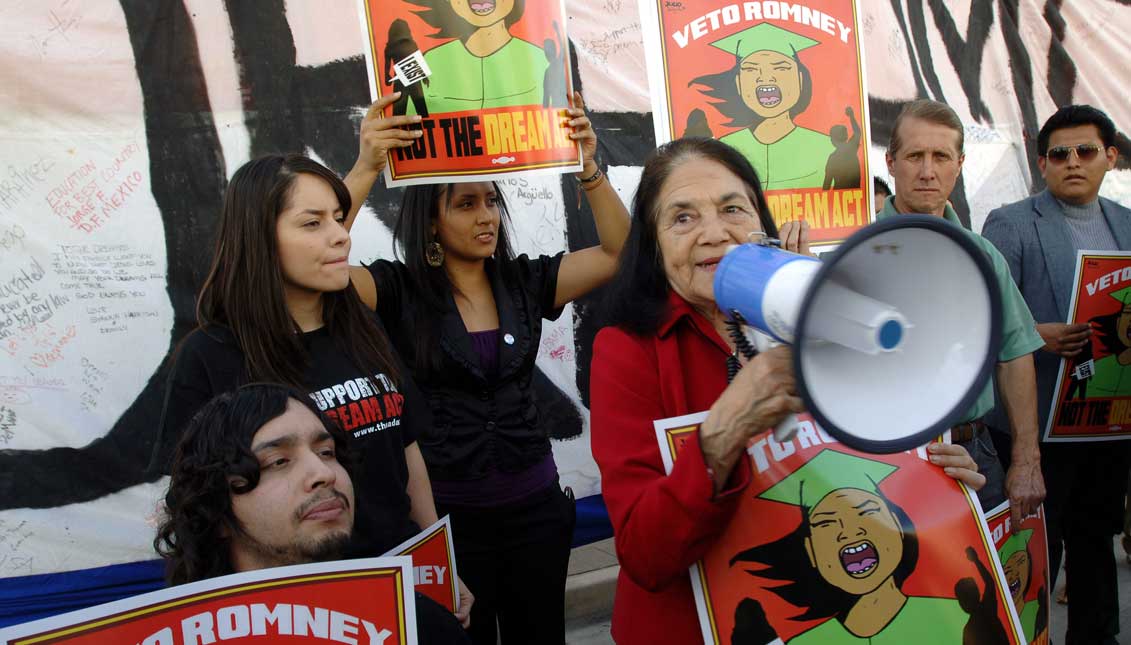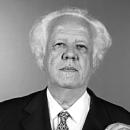
'Dolores' spotlights labor leader's triumph over adversity
MÁS EN ESTA SECCIÓN
Adults, too.
Today, that's a tall order in Donald Trump's America, where the president has called Mexicans "rapists" and "criminals" and said women are "crazy," likening them to animals. And where politicians, like Maine Republican Leslie Gibson, are emboldened by presidential vulgarity to call a young Latina activist, specifically Marjory Stoneman Douglas High School's Emma González, a "skinhead lesbian."
Look back in history and you see this is merely par for the course.
Directed by Peter Bratt, and produced by Bratt and Brian Benson for PBS' Independent Lens, "Dolores" condenses over five decades of organizing, leadership and role modeling into 90 minutes filled with the all-too-familiar story of being a heroine who, because of her gender, was underappreciated, underpaid and largely uncredited in the triumphs of the farmworker and civil rights movement.
The documentary bombards viewers with notable facts, shocking details and fascinating insights into the labor leader who, as Wendy Greenfield, a United Farm Workers volunteer observed, was seen by most people as "a subsidiary figure to César Chávez ... the assumption was that he was the leader and Dolores was the housekeeper of the movement, even though she co-founded the movement."
A quick rundown:
Huerta was born in Dawson, New Mexico, graduated high school, earned a teaching degree and helped lead a small community service organization before starting the Agricultural Workers Association, which set up voter registration drives and pressed local governments for community improvements.
CONTENIDO RELACIONADO
In 1955, she met Chavez, who was so shy that he bolted from her the first time she tried to talk to him. In 1962, they launched the National Farm Workers Association, which eventually became the United Farm Workers. The group continues to advocate for better working and living conditions for farm laborers.
Through seemingly endless protests, collective actions and boycotts, Huerta helped secure better wages and disability insurance, fought against the gender pay gap, battled for immigrant rights and launched the environmental justice movement.
As if that weren't enough, she did this all during a time when women were expected to be in the kitchen with the kids. She worked in the male-dominated farm fields, in the shadow of a charismatic male leader and before the broader civil rights and women's liberation movements had taken hold. Today Huerta is the president of her namesake foundation, which works to develop Latino leaders and elected officials.
"Dolores" covers a lot of ground, not the least of which is the way that Huerta's community organizing paved a direct path to Democratic Latino voter outreach and the elections of the Kennedys and Barack Obama (who is shown in the film apologizing and expressing gratitude for appropriating her signature "Sí, se puede" -- "Yes, we can" -- chant for his own means).
To its credit, "Dolores" isn't hagiography. The filmmakers acknowledge her critics, her evolution on feminism and her controversial decision to not fight to succeed Chavez as the United Farm Workers' president when she was passed over for the role after his death. They address the very real sacrifices Huerta's children made in the name of her ambitions.
The film's greatest strength is that seeing so much tenacity and success over adversity will totally pump you up.
"Latinos have been dealing with trauma as far back as the Mexican genocide in Texas, mass deportations, lynchings, Operation Wetback and, today, we continue to face higher rates of school suspensions, incarceration, police shootings and racism," Huerta told me last week.
"Sure, we're living in hard times, but you can also look around and see how many Latinos are in college, how many young people are marching in the streets, going to D.C. to confront senators; you see how the struggle creates leaders," Huerta said. "When you see all this energy in the country, people joining the women's movement, #metoo, Black Lives Matter, the [anti-school shooting] 'never again' movement, it gives me a lot of hope that it will all lead to real change. All that power, all that goodness ... it's going to be like the '60s, and we're going to come out stronger."






DEJE UN COMENTARIO:
¡Únete a la discusión! Deja un comentario.